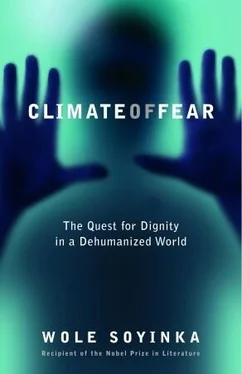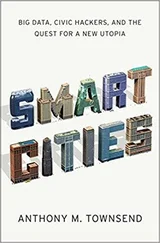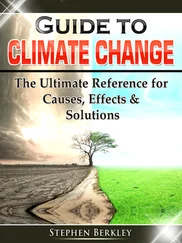In April 2002, at the invitation of the Palestinian writer Mahmoud Darwish, I formed part of a delegation of the Paris-based International Parliament of Writers— now known as the International Network of Cities of Asylum — that visited both Israel and Palestine. We were there to convey our solidarity to the imprisoned writers, artists, and intellectuals on both sides — imprisoned, that is, by circumstances that defeated even their customary borderless vision — and to bear direct witness to what we saw, what was said, and what might be expected.
I shall sum up my apprehension of the Palestinian situation in one word: humiliation. No, it was not because of one of our Palestinian guides who kept on repeating, “We want to live in peace with the Israelis, but let them at least grant us our dignity.” It was not because that word cropped up at least a hundred times — both in street encounters and during the concert of music and poetry that took place in the ancient theater of Ramallah — as the film made of every step of that journey amply testifies. No, it was simply something that I witnessed myself on this voyage of inquiry, and it affected me so intensely that I could hardly wait to share my disquiet with that Israeli leader for whom I have developed enormous respect after several encounters — Shimon Peres. He kindly received us — the organization’s then president, Russell Banks, and me — in his office, straight from his arrival after a visit to China, while we came in directly from a refugee settlement in the Gaza Strip. Our exchanges were candid, and I said to him, “What I saw, what I read on the faces of Palestinians, young and old, was humiliation. I encountered a people who seemed devoid of a hope for peace, yet desperate for a restoration of their human dignity.”
José Saramago, the Portuguese novelist and Nobel Prize winner, was even more graphic in another encounter, a kind of town meeting that took place in Ramallah. Indifferent to his popular standing in Israel, he used a metaphor from Nazi concentration camps that continues to ring around European literary and intellectual circles even a full year afterward. Saramago’s intent has been much misunderstood, being considered insensitive and hyperbolic by many, including some within our own rank of literary witnesses, but the very fact that this comparison was wrung out of a friend of the Israeli literary constituency contains its own lesson, and is one that cannot be ignored except at peril.
I witnessed the reality of this humiliation in domestic settings on which the contempt of an occupying force had been visited. I witnessed it at checkpoints. I heard it in the numerous recitations of personal experiences across all classes, in numerous episodes, on the campus of Birzeit University. Most depressing of all, I read it in the eyes of the young, where humiliation had hardened into a resolve not to yield up that very ineffable possession, dignity, the loss of which would finally affirm the nullification of their human status. Most frightening of all, I saw it congealed into a hard, cold, unremitting hatred. Yes, I understood the counterclaims of Shimon Peres, his anger at what he read as the treachery of the Palestinian leader Yasser Arafat over that leader’s repudiation of a negotiated agreement with former prime minister Barak at Camp David. And I acknowledged the weight of responsibility that rests on a leader whose primary mission must be to shield his people from attacks that have raised the barometer of terror through the relentless and undiscriminating use of the suicide bomber. Nevertheless, it was clear to me that, on his part, this astute Israeli leader, perhaps the most thoughtful of past Israeli leaders, did not truly grasp, or else deeply underestimated, the factor of humiliation, and the human attachment to that contentious possession — dignity.
The republic of the disillusioned expands by the day. Recruits into its army have abandoned all hope of justice from within and without, but remain committed to one all-consuming pursuit — dignity. As that goal recedes, they come to lose, like the Irish youth, all faith in a universal concept of human dignity and become indifferent to the moralities and restraints that hold up the scaffolding of civilized coexistence.These are the willing recruits to the army of terror: the “harmless neighbor,” the shy but pleasant young man or woman who helps with putting out the garbage and wishes you a good morning. Behind that friendly “Good morning” at a shopping mall, however, may lurk the sardonic smile that is powered by the secret knowledge of a terminal “Good-bye.”
The quasi-state, we know, sometimes overlaps or interlocks with Community and seeks to take it over. Critical mass occurs at the point at which one can no longer be distinguished from the other, and the overrun Community is seen to appear to bow totally to the control of the quasi-state, if only for a measure of preservation of its own identity. The responsibility that we owe ourselves is to prevent the attainment of that critical mass that then pits one Community against another.
Let us cast aside all further pretense. The genesis of the present climate of fear will be found right within the smoldering heart of the Middle East, that confluence of multiple civilizations within which are nestled the most influential spiritualities of the world — Judaic, Christian, and Islamic. The dispersal of the climate of fear therefore rests, fundamentally, in a just solution in the Middle East — it has been said often enough, it cannot be disputed, let no one be in any doubt about it. The time for tergiversations is over, it is time for a holistic confrontation of a global dilemma.
No Community, true, dares succumb to an arrogation of power over the lives of its innocents, and the doctrine of There are no innocents must be strategically and morally repudiated. To do less is to surrender our self-esteem, deny ourselves all dignity, diminish our own humanity, and indeed forgo our fundamental right to existence. Yet even as we build protective ramparts, and pursue the proponents of that impious catechism There are no innocents to the ends of the earth, the mind that aspires to an all-inclusive Community must expand beyond the immediate and address the genesis of the current climate of fear, not as an abstraction, but as a man-engendered reality and, thus, one that remains within the compass of human redress.
Between my first lecture, “A Changing Mask of Fear,” and this, yet another annunciation of posturing power left such a flaming imprint yet again on the world, this time on the railway tracks of Madrid, that there flashed across my mind a moment in the career of European fascism. That was the infamous event which a General Millán Astray, at the University of Salamanca, spat the shout of “Long live death” in the face of the humanist philosopher Unamuno. That banner of morbidity appears to have been hoisted all over the world. To take it down, the world must act in concert, and with resolve, but must also embrace or intensify a commitment to the principle of justice that ensures that the dispossessed shall enjoy restitution, and the humiliated are restored to dignity.
Five
“I Am Right; You Are Dead”
The French nation lately was involved in a controversy over its decision to ban ostentatious symbols of religious faiths from secondary schools. I was invited to take part in that debate, and readily accepted. It was a chance openly to interrogate my long-held conviction that there should be a period in the development of the young mind when the perception of differences in humanity is reduced to an absolute minimum, even if, obviously, it cannot be eliminated completely. That period, it appears equally obvious, is that of school pupilage, where the space of instruction is cleansed of manifestations of private wealth, tastes, class, and so on. The symbol, as well as practical expression of this oneness, the leveler, is of course the school uniform.
Читать дальше












